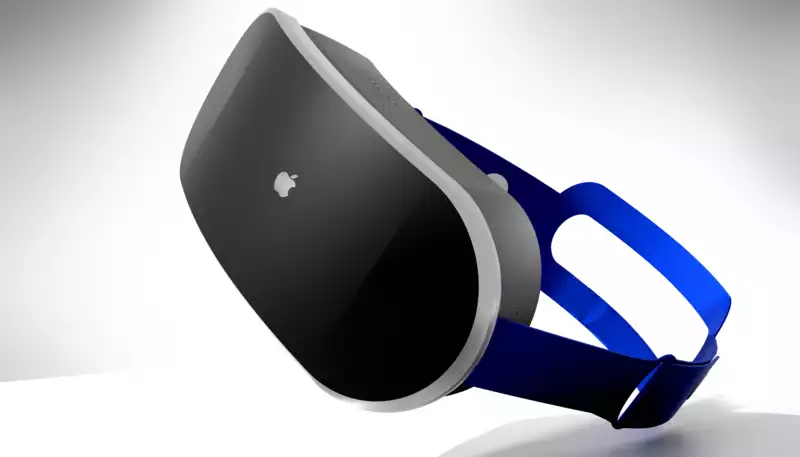Update: Apple may be going after Oculus Quest 2 with the headset, but it won't be joining Facebook in the metaverse. Apparently, the entire concept is "off-limits". On paper, the iPhone 14 could easily be Apple's most important product of 2022, but it won't be. Yes, the iPhone still accounts for about half of the company's revenue, and big things are expected for the new iPhone next year.
If you've been following the iPhone 14 rumors, the mini model may be gone, in favor of the new 6.7-inch iPhone 14 Max. And the iPhone 14 Pro model may ditch the dreaded notch and adopt a punch-hole display.
In addition, the iPhone 14 may be the first iPhone to use USB-C connectivity, and we're hearing that the main camera may be upgraded significantly from 12 megapixels to 48 megapixels. This is plenty to chew on.
But I now agree that it doesn't matter, at least considering that Apple is expected to enter a whole new category with its first Apple AR/VR headset. And it will be followed by Meta (formerly Oculus) and its lineup of headsets.
"The importance of Apple entering a new product category cannot be understated," says Avi Greengart, founder of Techsponential. Apple's success in reinventing an emerging product category, incorporating it into its own ecosystem, and bringing it into the mainstream, "attracts unique attention from both consumers and application developers.
According to multiple reports and leaks, Apple's mixed reality device has the potential to shock the tech industry, making Meta (formerly Facebook with its Oculus headset business) and others nervous.
For one thing, Apple is reportedly developing its own silicon with serious power for its mixed reality headset. In fact, Apple analyst Ming-Chi Kuo has said that "the high-end processor will have similar computing power to the M1 for Macs." There will also reportedly be a lower-end chip for "sensor-related computing."
Furthermore, unlike the current Meta Quest 2, Apple's mixed reality headset will offer both AR and VR experiences and is said to be very lightweight at 300 to 400 grams. The Quest 2, currently the best VR headset available, weighs 532 grams.
Other rumored specs include dual 4K microLED displays, Wi-Fi 6E support, 15 optical modules, and eye tracking. Additionally, Apple's AR/VR headset reportedly tracks hand movements, so there may be no need to use a controller.
However, the success or failure of Apple's headset is not based on specs or features.
"The biggest thing Apple can bring to AR and VR is clear purpose and design," says Greengart. 'What problems will having a head-mounted display solve? How often and under what circumstances will you wear it?"
Apple is ahead of the curve on fitness tracking and health with the Apple Watch 7 and Apple Fitness Plus service, and it would be natural for Apple to integrate both of its products into AR and VR headsets.
We should also remember that Apple has strong relationships with developers. After all, Apple has already been helping develop AR apps for the iPhone and iPad through ARKit for the past few years. [Of course, Meta is not standing still and is developing its own new AR/VR headset in the form of Project Cambria. No release date has been set yet, but it will reportedly be a higher-end device.
The new Meta headset will utilize advanced sensors to track your facial expressions and place digital objects in the real world, such as multiple screens on your desk or a virtual workout instructor in your living room.
However, there are critical differences between Apple's approach to VR and AR and Meta's.
"Meta, by sheer force of will and tens of billions of dollars, is forcing the category into existence. By heavily subsidizing the hardware, the Oculus Quest 2 VR headset became much more affordable than it otherwise would have been, accelerating adoption even before the initial use cases, such as gaming and fitness, became apparent," says Greengart.
However, Greengart says the trade-off for this affordability is that Meta monetizes the platform with advertising, which has a privacy trade-off. Since Apple makes more money on hardware, it may be able to prioritize user privacy.
Apple's first mixed reality headset could face serious challenges in terms of mainstream adoption. And there is still a stigma for many people in terms of wearing VR/AR headsets for extended periods of time. As our senior editor Philip Michaels recently said, "Apple needs to give us a reason to care about mixed reality."
But we should not underestimate Apple. That's because Apple is already reportedly planning to release a second AR/VR headset in 2023 and eventually release even lighter Apple Glasses that can be powered by an iPhone. In other words, the company is clearly in the long game.
But will the hype translate into sales? I would say yes, at least for early adopters, if the product works as advertised.
"Apple is very good at making consumers want whatever it's selling," says Greengart. . which is a function of good product design, but it's also an understanding of messaging that started with Steve Jobs and remains in the company's DNA."
.









Comments